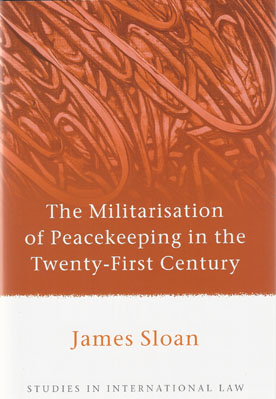
Since the end of the last century, UN peacekeeping has undergone a fundamental and largely unexamined change. Peacekeeping operations, long expected to use force only in self-defence and to act impartially, are now increasingly relied upon by the Security Council as a means to maintain and restore security within a country. The operations are established under Chapter VII of the UN Charter and some are empowered to use 'all necessary measures', language traditionally reserved for enforcement operations.
Through a close examination of these 21st century peacekeeping operations-including operations in Sierra Leone, the Democratic Republic of the Congo, Liberia, Côte d'Ivoire, Haiti and the Darfur region of the Sudan-the book shows that they are, for the most part, fundamentally ill-suited to the enforcement-type tasks being asked of them. The operations, which are under-funded, under-equipped and under-trained, frequently lurch from crisis to crisis. There is scant evidence, some ten years on, that matters are likely to improve.
The book argues that bestowing enforcement-type functions on a peacekeeping operation is misconceived. Such operations are likely to be unsuccessful in their enforcement-type tasks, thereby causing serious damage to the excellent reputation of UN peacekeeping, and the UN more broadly. In addition, because such operations are more likely to be perceived as partial, their ability to carry out traditional (non-forceful) peacekeeping tasks may be impeded. Finally, the Security Council's practice of charging peacekeeping operations with enforcement functions lessens the pressure on the Council to work to establish genuine enforcement operations-i.e., operations that are considerably better-suited to restoring peace and security.